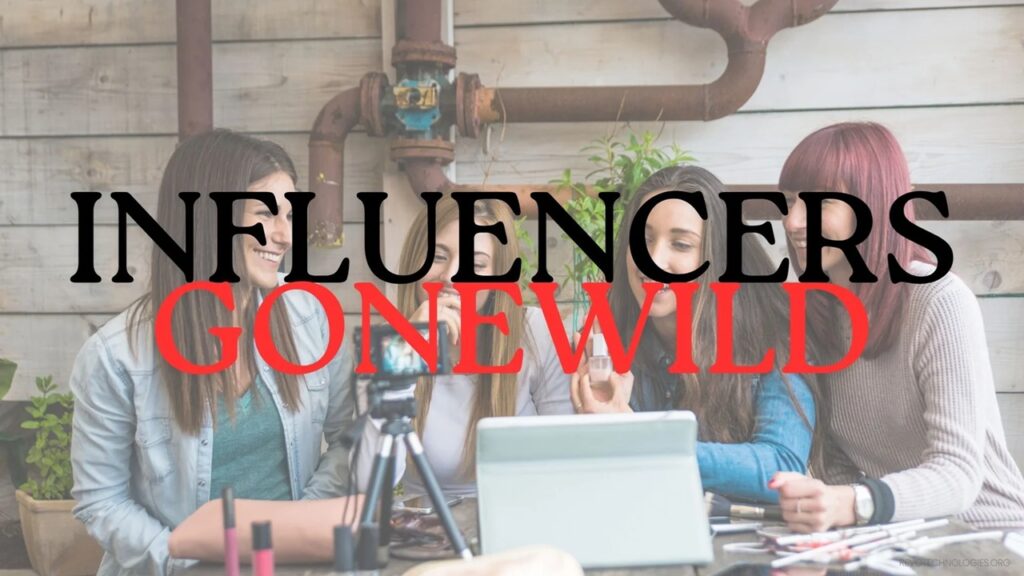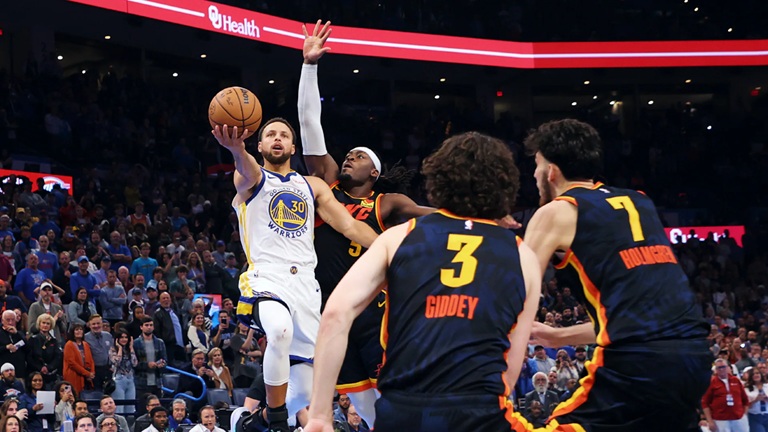In recent years, the rise of social media influencers has revolutionized the way we perceive and consume content. With millions of followers, influencers hold significant sway over their audiences, often shaping opinions, trends, and even consumer behavior. However, behind the glamorous façade of sponsored posts and curated lifestyles lies a darker side to influencer culture — one that is often overshadowed by controversy, exploitation, and a dangerous pursuit of fame.
In this article, we delve into the dark side of social media influencers, particularly the growing phenomenon of influencersgonewild. This term, often used to describe influencers engaging in reckless or inappropriate behavior, highlights the potential dangers of chasing fame at any cost.
Table of Contents
The Influence of Social Media and the Rise of Influencers
Before exploring the darker side, it’s essential to understand the rapid growth of influencers on platforms like Instagram, TikTok, YouTube, and others. The accessibility of these platforms has enabled everyday individuals to amass large followings, often without the need for traditional celebrity status or years of training.
These influencers often promote products, share lifestyle content, and engage with their followers, creating a sense of intimacy and trust. With millions of followers, influencers can command significant attention, making them valuable assets for brands looking to target niche audiences. However, this success can come at a cost.
The Pressure to Maintain a Perfect Image
For many influencers, the pressure to maintain a perfect image becomes overwhelming. With constant scrutiny from followers and the media, the need to appear flawless — both physically and emotionally — often drives influencers to extreme lengths. Some influencers may resort to editing their photos, portraying an unrealistic version of their lives, and engaging in controversial actions for attention.
In their quest for validation, influencers may blur the lines between authenticity and performance, leading to a distorted sense of self-worth and a dangerous addiction to social media metrics such as likes, comments, and shares.
The Dark Side of InfluencersGoneWild

The term influencersgonewild typically refers to influencers who indulge in extreme or reckless behavior to gain attention or boost their social media presence. This behavior can range from participating in dangerous stunts to posting inappropriate content, and it often comes with serious consequences.
Reckless Stunts and Risky Behavior
One of the most significant issues surrounding influencers gone wild is the tendency to engage in risky and dangerous stunts for the sake of content. These influencers may push boundaries by performing extreme challenges, engaging in life-threatening activities, or even encouraging their followers to do the same. The most alarming aspect of this behavior is that it encourages a dangerous trend among younger, impressionable followers who may attempt to replicate these acts without understanding the risks involved.
For example, some influencers have been known to engage in reckless driving, use substances, or take part in dangerous dares that compromise not only their safety but also the safety of those around them. These acts can lead to severe consequences, including injuries, arrests, and in extreme cases, loss of life.
Exploitation and Manipulation
Another dark side of the influencer world is the exploitation and manipulation of followers, particularly the younger demographic. Many influencers portray an image of luxury and wealth, often using affiliate marketing and sponsored posts to promote products. While this can be seen as a legitimate business venture, it also raises concerns about ethical practices.
Some influencers may manipulate their audience into purchasing products or services that are harmful or unnecessary. For example, influencers who promote weight loss supplements, get-rich-quick schemes, or even unregulated skincare products can put their followers’ health and finances at risk. This behavior can also promote unrealistic beauty standards and consumerism, leading to issues like body dysmorphia and financial strain among their followers.
The Impact on Mental Health

While the external pressures on influencers are apparent, the psychological toll of influencer culture is often ignored. Many influencers experience mental health struggles, including anxiety, depression, and burnout. The constant need to create content, manage online interactions, and maintain a perfect image can take a serious toll on an influencer’s well-being.
The phenomenon of “Instagrammable” lifestyles — showcasing only the best moments of life while hiding the struggles — can exacerbate feelings of inadequacy among followers. Influencers may feel compelled to hide their true selves in order to maintain the illusion of perfection, leading to a growing sense of disconnect between their online persona and real-life identity.
Moreover, influencers who engage in controversial or reckless behavior may later suffer from public backlash. This can lead to a damaging cycle of self-doubt and mental health challenges, as they navigate online hate and criticism. In some cases, influencers have faced severe emotional distress, including suicidal thoughts, due to the weight of public opinion.
Cyberbullying and Harassment
With their public visibility, influencers are particularly vulnerable to cyberbullying and harassment. Trolls and online critics often target influencers, sending hurtful comments, making personal attacks, and even spreading malicious rumors. This behavior can severely affect an influencer’s mental health, especially when the harassment escalates to doxxing, where personal information is exposed to the public.
The constant barrage of negative feedback, combined with the pressures of maintaining a flawless online persona, can create a toxic cycle of stress and anxiety, which may result in emotional exhaustion and depression.
The Role of Platforms in Influencer Behavior

Social media platforms play a significant role in shaping influencer behavior. While these platforms provide opportunities for content creators to grow their audiences, they also allow for the promotion of dangerous behavior. The algorithms used by platforms like Instagram and TikTok often reward extreme or attention-grabbing content, which may incentivize influencers to engage in reckless actions to increase their visibility.
However, platforms have begun to take steps to regulate harmful content. Many have implemented guidelines aimed at curbing dangerous stunts, hate speech, and the promotion of misleading products. While this is a step in the right direction, the sheer volume of content posted daily makes it difficult for platforms to enforce these rules consistently.
The Need for Ethical Influence
In response to the growing concerns around influencer culture, many influencers have begun promoting ethical influence. These influencers prioritize authenticity, mental health, and transparency, encouraging their followers to make informed decisions. They use their platform to discuss important social issues, promote healthy lifestyles, and advocate for mental well-being.
Ethical influencers often emphasize the importance of self-care, body positivity, and mindful consumption. They encourage their audiences to question the unrealistic portrayals of life on social media and to seek out genuine connections rather than striving for superficial popularity.
Conclusion
The rise of influencers on social media has undoubtedly changed the way we consume content, but it has also exposed the darker side of fame and online culture. The phenomenon of influencersgonewild highlights the dangers of reckless behavior, exploitation, and the pressure to maintain a perfect image.
While social media platforms can provide influencers with the opportunity to succeed and make a living, they also foster environments where the pursuit of fame and validation can have serious consequences. As consumers of social media, it’s important to recognize the impact of influencer culture on both influencers themselves and their followers. By promoting ethical practices and mental health awareness, we can begin to shift the narrative around influencers and help cultivate a healthier online space for everyone involved.
In the end, it’s not just about likes and shares — it’s about fostering a culture that values authenticity, self-respect, and genuine connection.
Disclaimer: The views and opinions expressed in this article are for informational purposes only. The content does not endorse or encourage reckless behavior, exploitation, or any actions that may harm individuals or communities. Always prioritize safety, mental well-being, and ethical practices when engaging with social media.
Also read – Influencers GoneWild: When Social Media Fame Takes a Wild Turn






